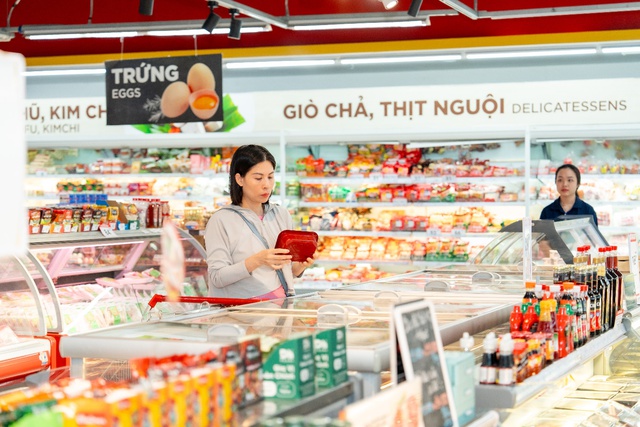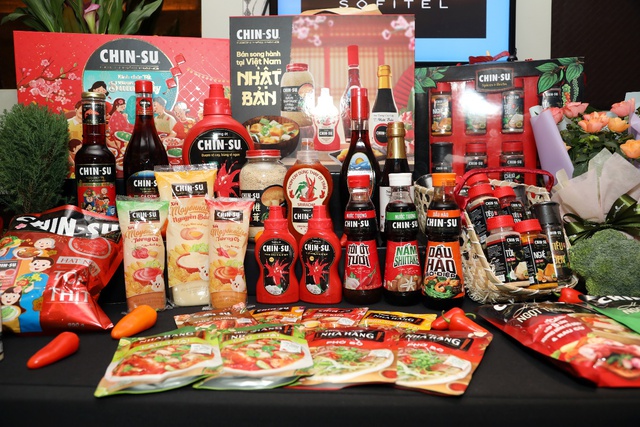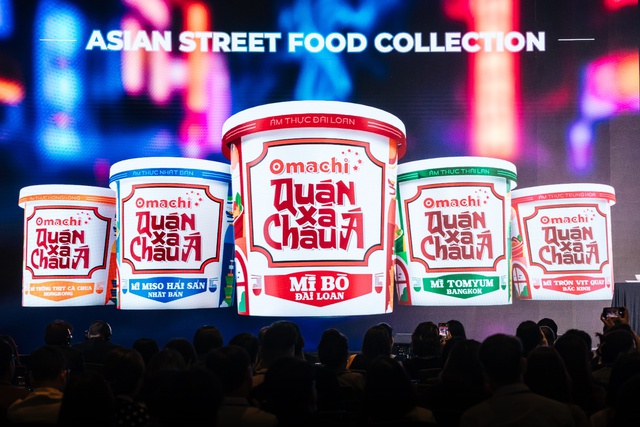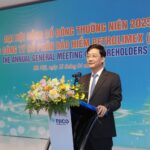A Strategic Milestone in Shaping the Role of the Private Sector
On May 4, 2025, the Politburo issued Resolution No. 68-NQ/TW, recognizing the private sector as a crucial driver of the socialist-oriented market economy. The resolution sets ambitious targets for the private sector’s contribution to the economy, aiming for a 55-58% share of GDP by 2030, with at least 2 million efficient enterprises and a minimum of 20 private conglomerates capable of deep integration into regional and global value chains.
The resolution also emphasizes institutional reforms, calling for a transparent business environment and a reduction of at least 30% in compliance costs by 2025. Private enterprises are encouraged to invest in technology, improve labor productivity, and expand sustainably. In this context, businesses that proactively innovate and have an integrated development foundation will play a pivotal role in implementing the country’s orientations.
Consumer and Retail Enterprises Embrace the Policy
As one of the leading domestic conglomerates, Masan has long pursued a closed-loop development model from production to consumption. By mastering the supply chain from input to the point of sale, the company optimizes costs, ensures quality, and enhances operational efficiency—prerequisites for the private sector to become a dominant force with a competitive edge in the region.

Masan’s integrated model: Mastering the supply chain for efficient and sustainable growth
According to its Q1/2025 financial report, Masan recorded consolidated net revenue of VND 18,897 billion, an 11.1% increase on a like-for-like basis compared to the previous year. EBITDA reached VND 4,003 billion, a 20.8% growth, while net profit after tax after minority interest (NPAT Post-MI) surged nearly fourfold to VND 394 billion compared to Q1/2024.
This growth was driven by all of Masan’s main business pillars: Masan Consumer, the essential consumer goods producer, achieved revenue of VND 7,489 billion, a 13.8% increase, thanks to stable growth in its core categories. WinCommerce, the modern retail chain with over 4,000 stores, recorded revenue of VND 8,785 billion, a 10.4% increase, while maintaining profitability for the third consecutive quarter, reflecting significant improvements in operational efficiency. Meanwhile, Masan MEATLife, the branded meat business, posted revenue of VND 2,070 billion, a 20.4% increase, attributable to rising pork prices and the strong performance of its processed meat products.
Focus on Domestic Value Chains
One of the key orientations of Resolution No. 68-NQ/TW is to encourage private enterprises to dominate domestic value chains. Masan is gradually taking control of the entire value chain from production to consumption, including livestock farming, processing, product development, and distribution through its extensive retail network. The company’s brands, such as CHIN-SU, Nam Ngư, Wake-up 247, Kokomi, and Omachi, are already present in 98% of Vietnamese households.

Masan’s retail chain, WinCommerce, is expanding rapidly, especially in rural areas, modernizing trade and bringing convenient goods and services to consumers.
Alongside its consumer business, Masan’s retail chain, WinCommerce, with over 4,000 stores, is expanding rapidly, especially in rural areas—a region undergoing a rapid shift from traditional to modern trade, yet lacking a distribution system. By expanding its network in these areas, WinCommerce is modernizing trade, bringing convenient goods and services to consumers, and serving as an extended arm for Vietnamese products to reach consumers nationwide. Notably, the retailer prioritizes the promotion of local agricultural produce, maintaining a ratio of over 90% for domestic goods in its system. In 2025, WinCommerce plans to open an additional 800-1,000 stores, bringing the total number of selling points to 4,500+, with approximately 70% of new stores located in rural areas.
Innovation and Technology Focus
Amid intensifying global competition, technological innovation is crucial for maintaining a competitive edge. At the recent Annual General Meeting held in April, Masan announced its strategy to invest significantly in digital transformation across its business and operations to optimize its supply and distribution chains and better engage and serve consumers.

Masan’s digital transformation strategy aims to enhance operational efficiency and better serve consumers.
The company will continue its premiumization strategy and product innovation across its fast-moving consumer goods portfolio. For instance, Masan will introduce a new category for Omachi, named “Asian Street Food.” This initiative targets the meal market with an accessible price point of just $1, leveraging advanced technology applied in self-heating hot pot and rice products to offer convenient, high-quality meals at reasonable prices, tapping into a vast potential market.
Masan is not only focused on the domestic market but is also a pioneer among private enterprises in promoting Vietnamese culinary culture globally. In Q1/2025, Masan Consumer’s international revenue grew by 73.2%, mainly driven by large markets such as China, Japan, South Korea, and Southeast Asia.
With its efforts in line with Resolution No. 68, Masan is expected to be a leading force in driving the development of the private sector and contributing to the overall growth of the economy.

Masan is committed to driving the development of the private sector and contributing to Vietnam’s economic growth.
“A Bright Start: PJICO’s Impressive Performance in Q1”
In the recently released Q1 2025 financial report, Petrolimex Insurance Joint-Stock Corporation (PJICO, code: PGI) recorded a total revenue of VND 1,343 billion, a 3.3% increase, amounting to 26% of the yearly plan. The original insurance revenue reached VND 1,114 billion, a slight 1.3% uptick compared to the same period in 2024.
“FinanceAsia: SHB is Vietnam’s ‘Best Bank for Public Sector Clients’ in 2025”
Within the prestigious FinanceAsia Awards 2025, the Saigon-Hanoi Commercial Joint Stock Bank (SHB) has been recognized as the “Best Bank for Public Sector Clients” in Vietnam. This esteemed accolade celebrates SHB’s unwavering dedication to offering comprehensive and efficient financial solutions to public sector entities, standing as a testament to their commitment to fostering the country’s sustainable development.
The Legal Kickstart for Private Economies – From China to Vietnam
While Vietnam has recently made a bold political statement with Resolution 68-NQ/TW, firmly committing to the development of its private sector, China has taken a similar pledge one step further. The neighboring giant has codified this commitment into a dedicated law, which will come into force in 2025, providing a detailed and concrete roadmap for the future.
“Tax Breaks for Startups: A Boost for New Businesses”
The Ministry of Finance has submitted to the Government a document guiding the implementation of the policy to exempt income tax for the first two years and reduce it by 50% for the next four years for startup activities.
“PM Orders Comprehensive Audit of Bank Accounts and Phone Records”
“The Prime Minister has directed the Ministry of Public Security to collaborate with the Ministry of Science and Technology, the State Bank of Vietnam, and relevant agencies and businesses to initiate a comprehensive campaign. This campaign entails a thorough review of bank accounts and phone SIM card registrations to strengthen state management and prevent the rising tide of online fraud and scams. This proactive step underscores the government’s commitment to safeguarding its citizens in the digital arena.”





















